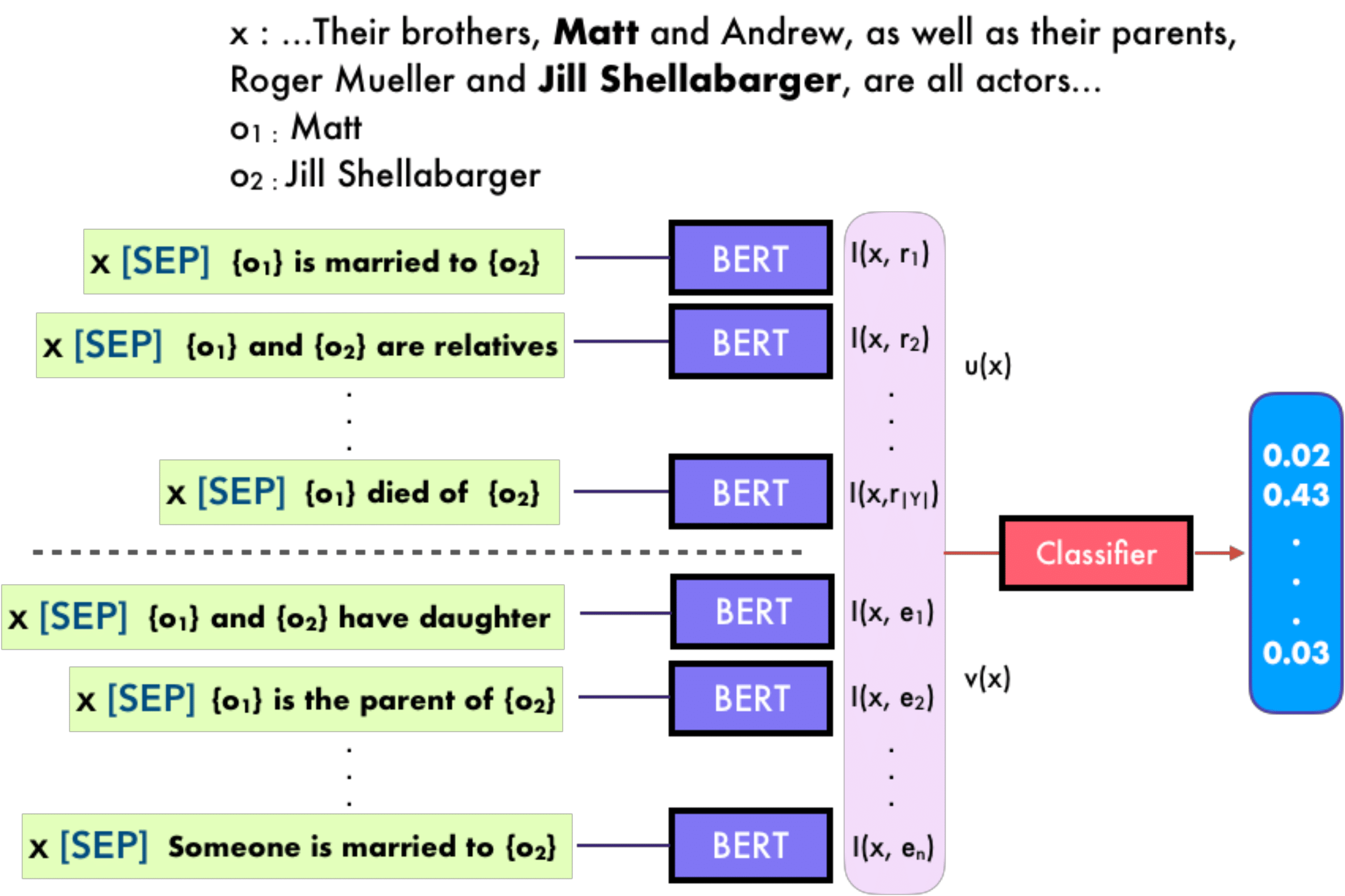This repository contains code, scripts, data and checkpoints for running experiments in the following paper:
Shikhar Murty, Pang Wei Koh, Percy Liang
[ExpBERT: Representation Engineering with Natural Language Explanations]
The experiments uses datasets and precomputed features which can be downloaded here:
- Spouse (Hancock et al., 2018): download
- Disease: (Wei et al., 2015): download
- TACRED (Zhang et al., 2017): for access, please contact the dataset creators directly.
Suppose we want to specify the inductive bias that married couples typically go on honeymoons for the task of extracting pairs of spouses from text. In this paper, we allow model developers to specify these types of inductive biases as natural language explanations. We use BERT fine-tuned on MultiNLI to "interpret" these explanations with respect to the input sentence, producing explanation-guided representations of the input. Across three relation extraction tasks, our method, ExpBERT, matches a BERT baseline but with 3--20$\times$ less labeled data and improves on the baseline by 3--10 F1 points with the same amount of labeled data.
Install all dependencies using conda:
conda env create -f environment.yml
conda activate lang-supervision
pip install -e .
To run our code, first download the data/features into $DATA_DIR. The main point of entry to the code is run.py. Below we provide commands to train models on the Spouse dataset. To modify it for Disease set --task_name disease and to modify it for TACRED, set --task_name tacred and --num_classes 42:
python run.py --data_dir $DATA_DIR/spouse --train --num_train_epochs 100 --task_name spouse --classifier_type feature_concat --exp_dir input-features --num_classes 2 --train_distributed 0 --dev_distributed 0 --save_model --output_dir $outdir
python run.py --data_dir $DATA_DIR/spouse --train --num_train_epochs 100 --task_name spouse --classifier_type feature_concat --exp_dir input-features --feat_dir $feat --num_classes 2 --train_distributed 0 --dev_distributed 0 --save_model --output_dir $outdir
where $feat is semparse-progexp-features, semparse-langexp-features or regex-features based on the interpreter needed.
python run.py --data_dir $DATA_DIR/spouse --train --num_train_epochs 100 --task_name spouse --classifier_type feature_concat --exp_dir expbert-features --num_classes 2 --train_distributed 10 --dev_distributed 0 --save_model --output_dir $outdir
Note that train_distributed is set to 10 here since inside spouse/expbert-features there are 10 files corresponding to the training features. This sharding is done to parallelize the creation of expbert features.
To produce ExpBERT features for your own dataset/explanations, we also provide a feature-pipeline. First, download a BERT/SciBERT model fine-tuned on the MultiNLI dataset from here into $BERT.
Then create a config.yaml file such as the following:
interpreter:
type: bert
path: $BERT
use_logits: False
paths:
data_dir: $fictional_dataset_dir
exp_dir: explanations
save_dir: $fictional_dataset_dir/expbert-features
data_reader: reader
Note that while we provide readers for the datasets used in this paper, a different reader might be required for your dataset - look at data_utils/readers.py for more info.
Finally, run the following command to produce features: python create_features.py --exp_config config.yaml.
Finally, we provide checkpoints for all models in our paper. The checkpoints can be found here. Commands for running the checkpoints can be found there as well.
https://worksheets.codalab.org/worksheets/0x609d2d6a66194592a7f44fbb67ba9f49
